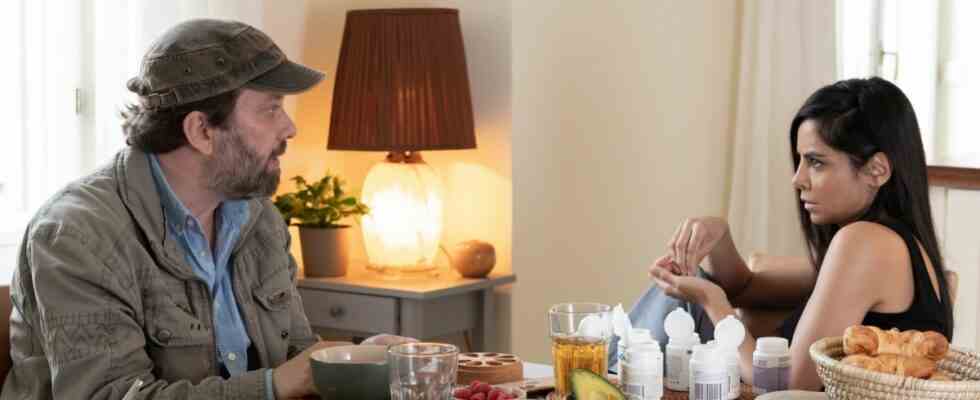It was clear that “Godwin’s Law” would become relevant in this series, which was always designed for escalation – emotionally, aesthetically. And as for shame. Especially there. “As the length of an online discussion increases,” attorney Mike Godwin observed with consummate sarcasm in the 1990s, “the likelihood of a comparison to the Nazis or Hitler approaches one.” So it will be, just before jerks ends, of course, with this sentence: “What the Nazis failed to achieve, Christian has now completed.”
And it speaks for this piece of television history, which is worthy of worship at least by German standards, that it is the logical end point – but in terms of shame, the cringe factor and contraction of all organs capable of doing so, it is by no means the high point. But this would be on offer: “I was with the bus driver, we masturbated together, I fell off the chair … you can ask Kala, she was there.” Kala is the Speaker’s daughter.
jerks, for everyone who has only read Herta Müller in recent years (and so please start with season one anyway), is a comedy show, but actually a large-scale sociological study about embarrassment, shame and egoism – i.e. about people -, in centered around the actors and friends Christian Ulmen and Fahri Yardım. Brilliant and possibly true to life in parts, they will be performed by Christian Ulmen and Fahri Yardım. Other German A and B celebrities appear in very important supporting roles, also in rather gentle modifications of themselves. There is a rough plot framework in the script, from there improvisation takes place. If something goes very wrong, you can save it on average, as Ulmen explained to the SZ in an interview.
Benjamin von Stuckrad-Barre: “What others call everyday life or normality is a state of emergency for Ulmen.”
If you still can’t imagine what that means: If Liesl Karlstadt and Karl Valentin had gone to the jungle camp to smoke crystal meth for a few years, it might have ended in a similar way.
In the fifth and supposedly final season there is now, among other things, a flashback of how Ulmen and Yardım get to know each other at school. A disabled classmate is important. Cancel culture is also an issue without being an issue, just like the climate catastrophe. Otherwise, everyone is even more screamingly lonely than in previous seasons, and they compensate even more by sending pleas for help to the world, in facial expressions, posture, through promiscuity, forced joy, obnoxiousness, or by giving up.
Before each episode there is also the note: “The events described are based on true events.” Which, of course, accounts for parts of the pull, i.e.: What? How? Where? And: not really, right?!
Or yes. In any case, the writer Benjamin von Stuckrad-Barre accompanied Ulmen to the Christmas party of his production company a few years ago and brought this with him in the very affectionate text “Being Christian Ulmen”: “Now he stands next to an employee whose birthday is today , she is on the phone with a TV editor, Ulmen fiddles with the bouquet in front of her and asks everyone to congratulate them again, it just doesn’t fit at all, and when finally everyone in the room is confused and apprehensive, he seems to feel reasonably well, Now everyone is like him, because what others call everyday life or normality is a state of emergency for Ulmen.” That’s the way it is. For real.
Jerks, ten episodes, on Joyn Plus.
You can find more series recommendations here.

